Tara is the in-house content lead at Digistorm, tending to all content needs, big or small! When she’s not writing copy or managing the Insights editorial calendar, Tara is passionate about supporting theatre and live music.
- Microsites are often under-utlised website modules, but can have a really big impact.
- A microsite is a small set of easy-to-navigate web pages that live outside of your school’s primary website, often focused on a particular topic or event.
- We share real life examples of schools using microsites in their digital marketing strategy.
Microsites might just be one of our most powerful yet under-utilised website modules. So today, we’re going to give them the attention they deserve by shining the spotlight on five different (but equally effective) ways a microsite can really make an impact.
But first, a quick recap on what microsites are!
A microsite is a small set of easy-to-navigate web pages that live outside of your school’s primary website. It lives on its own domain but is fully branded and acts as an extension of your school brand. Generally, you’ll find that microsites tend to focus on a particular topic or event – think special events, alumni communities, co-curricular activities, and foundations, to name a few.
1. Somerset Storyfest
To kick things off, let’s start with one of the most common reasons why schools might like to create a microsite: special events. The Somerset Storyfest is an annual celebration of literature founded by Somerset College. This three-day festival is held on the Gold Coast and has enriched young lives through culture and storytelling since 1994. As a notable event on the Queensland literary calendar, the Somerset Storyfest required its own dedicated space, separate from the College’s primary website. The event organisers could provide targeted content and information about the event.

This microsite acts as a powerful marketing tool for Somerset Storyfest by showcasing event information, events, and competitions. Another key advantage of using a microsite for keystone events is that you’re able to create custom event-specific branding without compromising your school’s existing brand. This means that visitors can experience the Somerset Storyfest microsites’ colour and vibrancy while maintaining the event’s affiliation with Somerset College.
2. Genazzano Institute of Learning & Brain Sciences
Next up, we’re shifting our focus to specialist institutions and school programs. The Genazzano Institute of Learning & Brain Sciences aims to promote engagement and practice in the evolving fields of brain sciences among students and the broader school community. In a total power-move, this microsite sets Genazzano apart from competitors by highlighting their commitment and advancement within this specific area of education to current and prospective families.
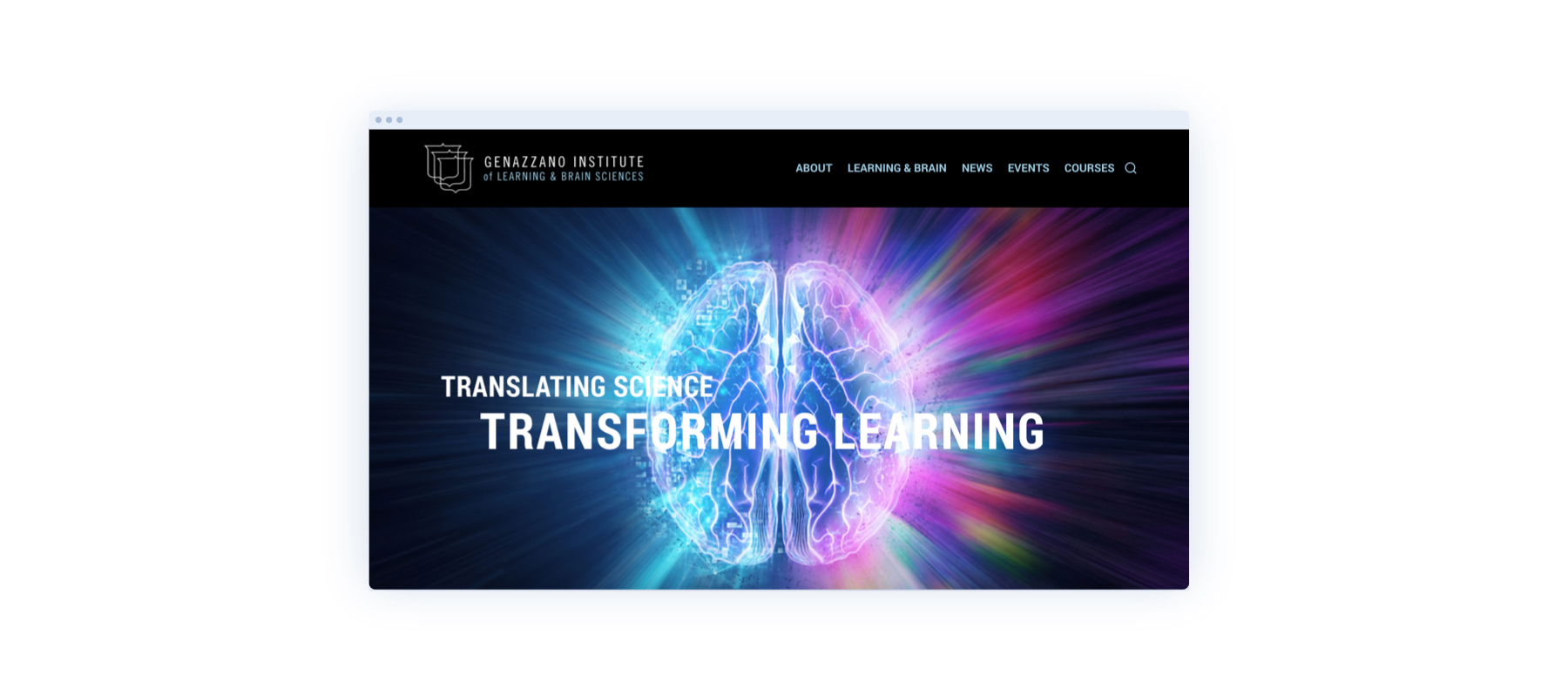
In addition to keeping students up-to-date with current news and events, the microsite also enables Genazzano with a platform to provide additional learning resources and professional development for relevant staff and educators. Finally, like all institutions, new sponsors and partners are always welcome. This microsite provides the opportunity to showcase the institute’s key supporters and encourage new ones. 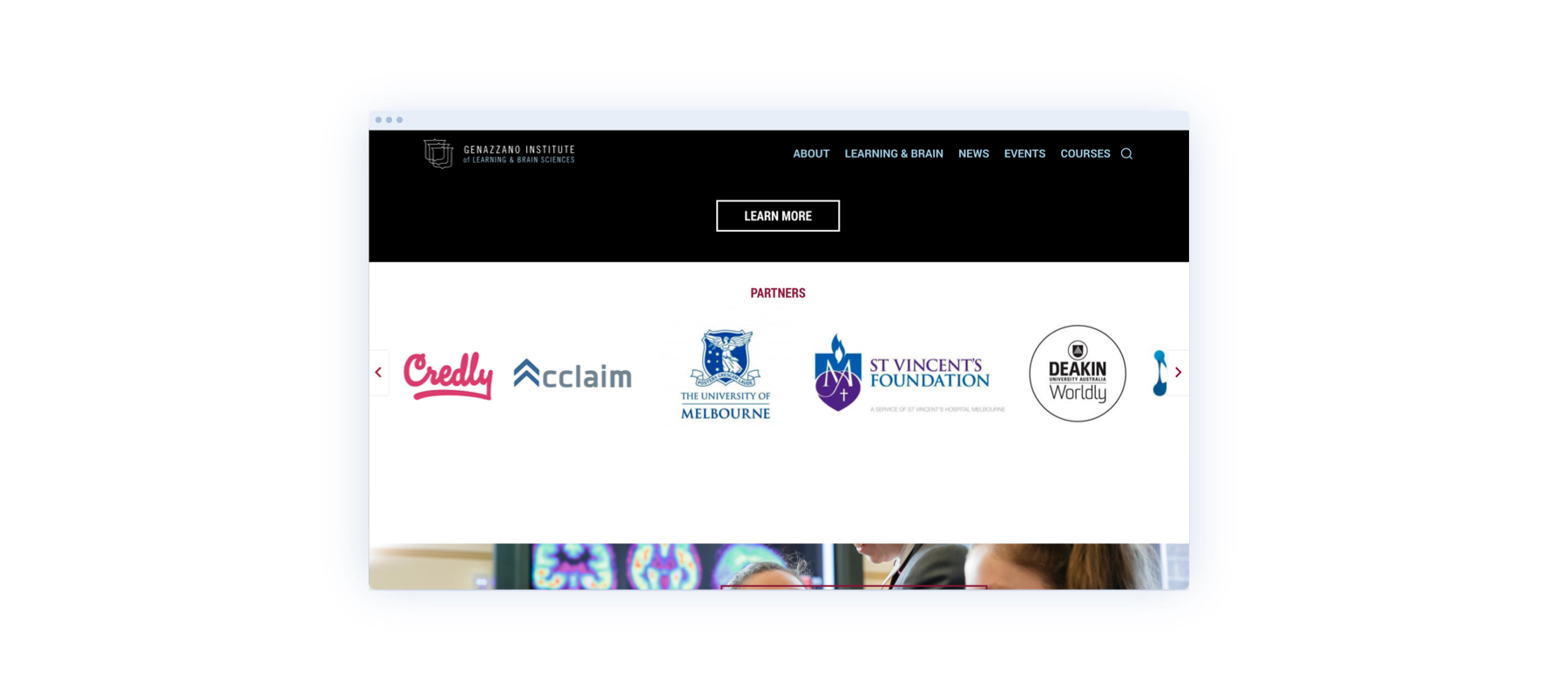
3. Ivanhoe Girls' Grammar School Co-Curricular activities
Just about every school has its own set of co-curricular activities, but what they might not have are dedicated microsites. Below, we have two microsites for Ivanhoe Girls' Grammar School's Performing Arts and Aquatics activities. One of the first details you might notice about these microsites is that they follow a theme of brand and style – this was a deliberate design choice to ensure each microsite remained consistent with the school’s brand guidelines.
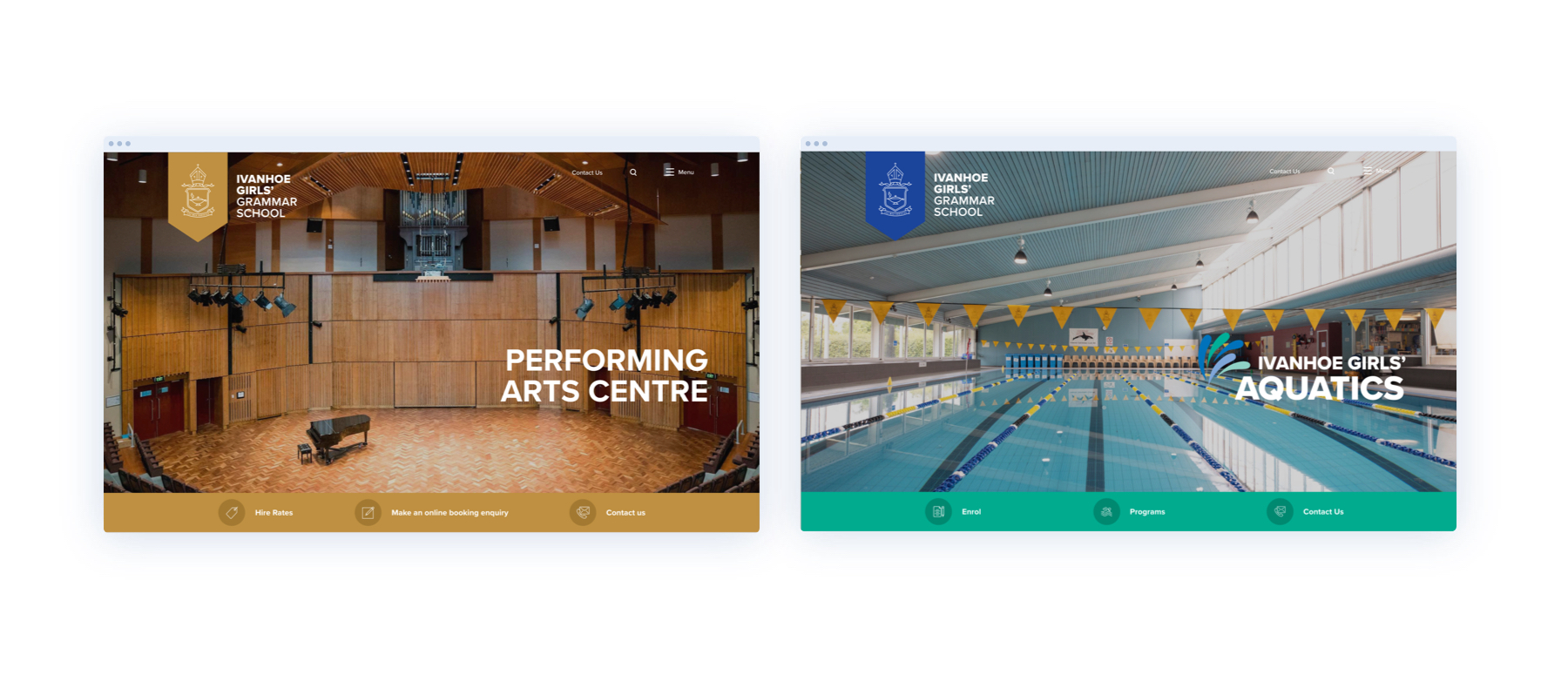 To keep the navigation sleek and simple, only the most important call to action is displayed above the fold directing visitors to take the specific steps. When choosing to create microsites for your co-curricular activities, you'll have much more space to provide detailed information than on your regular webpage. With a microsite, you can create dedicated pages to various content such as; news, schedules, upcoming events, and more!
To keep the navigation sleek and simple, only the most important call to action is displayed above the fold directing visitors to take the specific steps. When choosing to create microsites for your co-curricular activities, you'll have much more space to provide detailed information than on your regular webpage. With a microsite, you can create dedicated pages to various content such as; news, schedules, upcoming events, and more!
4. A.B. Paterson College Foundation
Taking an altruistic turn now, the A.B. Paterson College Foundation is all about creating opportunities for the leaders of tomorrow. As you can imagine, there’s a lot of important details associated with operating a foundation. With a dedicated microsite, the A.B. Paterson College Foundation can provide visitors with in-depth information about the foundation’s history, values, goals, and opportunities.
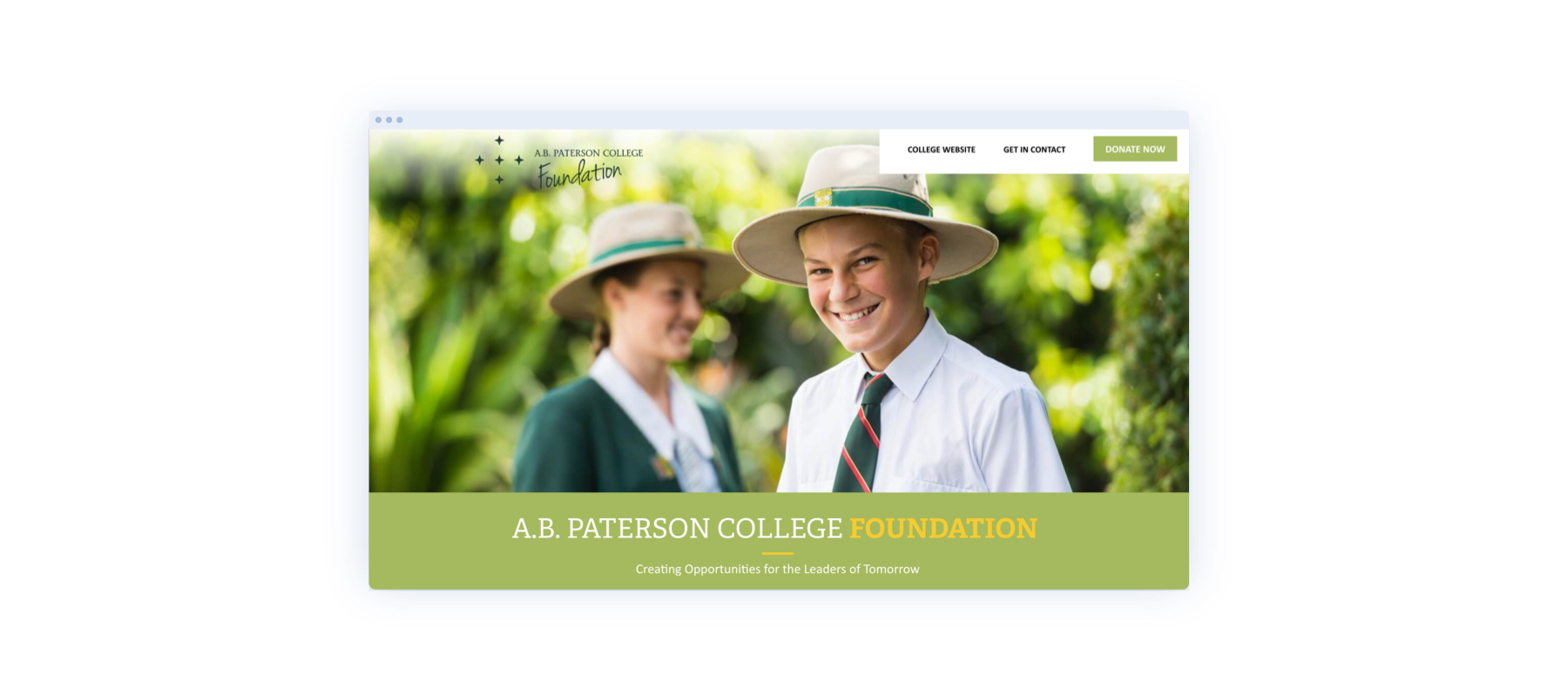
We designed the top menu to avoid overwhelming visitors to only include three options: donate, get in touch, or head back to the main College website. We believe this approach emphasises the foundation’s primary goals while helping visitors find what they’re looking for – fast! Unlike previous microsite examples, this one is perhaps the most consistent with the College’s primary website. We believe this is the key to strengthening the foundation’s identity with visitors.
5. St Laurence's College Old Boy’s association
To wrap things up, let’s touch on leveraging microsites for nurturing your alumni community. I think we can all agree on just how important alumni can be for your school – not only do they have the potential to be lifelong representatives for your school but there’s a high chance they’ll send their children to your school as well. The team at St Laurence's College knows just how important it is to maintain these relationships, which is why they have created a microsite that’s dedicated to their Old Boy’s association.
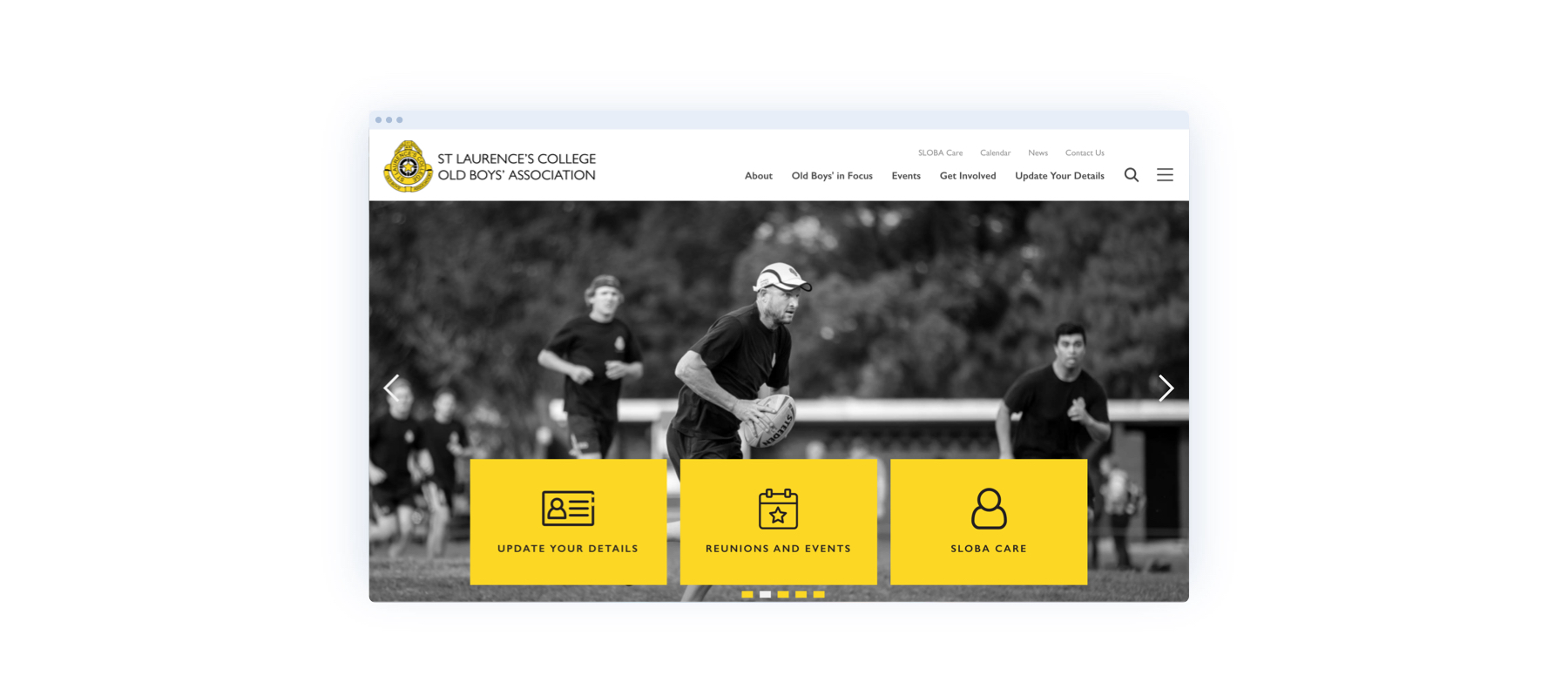
What might have been previously hidden in the school’s website navigation has now been brought to the forefront and strengthen this community. The microsite enables past students to update their contact details, register for upcoming reunions and events, or contribute to site content and upcoming newsletters.
So there you have it, five powerful ways that microsites can make an impact on your school. But, of course, we’ve only just scratched the surface here, and there are many more examples of how you might like to utilise a microsite.
If you liked this post, check out the previous edition of this series: The Anatomy of a Perfect School Website Homepage.
.png)